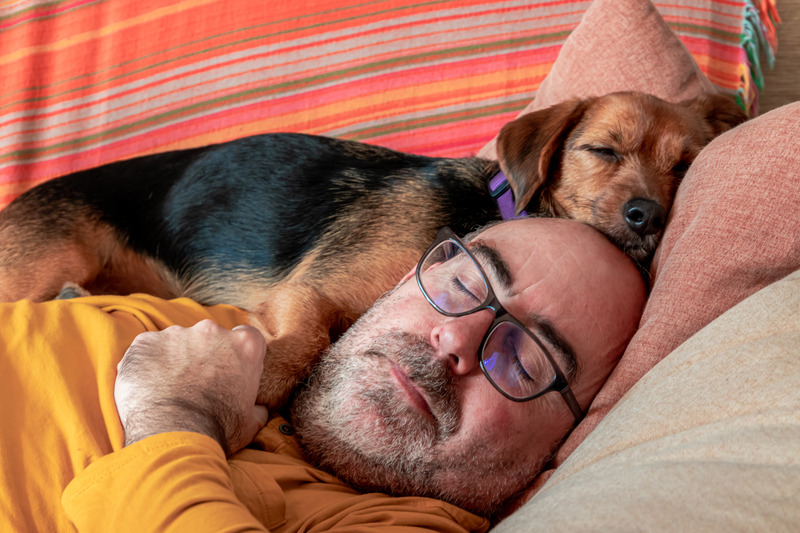
Is there anything as comforting as snuggling with a cuddly pet? Whether it’s your dog at your feet or your cat curled up by your pillow, sharing your bed with a furry companion is a sweet routine for many. In fact, it can have some health benefits for certain people. However, if you’re living with sleep apnea, this habit might be doing more harm than good. Continue reading to see how your beloved pet might be affecting your sleep, and what you can do about it.
Pet Disruptions and Sleep Fragmentation
Pets move. They scratch. They snore. They sometimes decide 3 AM is the perfect time to race across the bed. While this might not be a big deal for heavy sleepers, people with sleep apnea already struggle with slipping into dreamland and staying there.
Even minor disturbances can worsen sleep apnea symptoms by pulling you out of critical sleep stages, especially if you’re already waking up throughout the night due to breathing interruptions.
Pet Dander and Allergies
If your pet sheds, you might be breathing in more than you bargained for. Pet dander can contribute to airway inflammation, nasal congestion, and allergic responses. For people with obstructive sleep apnea (OSA), this can make things worse by narrowing breathing passages.
If you’re frequently waking up stuffy or coughing during the night, your pet’s presence might be a precarious part of the puzzle.
Temperature Trouble and Space Issues
Have you ever woken up because your dog took over the entire bed, or found yourself kicking at the covers because of your cat’s body heat? Pets can alter your sleep environment in subtle ways. Whether it’s raising your core temperature, shifting your pillow, or leaving you with less room to relax, your sleep suffers.
Is It Time to Relocate Your Pet at Night?
Before you break out the kennel and banish your furry friend to the living room, try setting some boundaries. Here are some ways you may be able to lessen the negative effects of the presence of your pet:
- Place a pet bed next to yours rather than on it.
- Use a HEPA filter or air purifier to reduce dander in the room.
- Clean your pet’s paws and fur before bedtime to minimize allergens.
Animal companions bring love and comfort to bedtime, but they might also cause sleep disruptions you didn’t realize. If you’re struggling with sleep apnea and your furry friend shares your bed, it’s worth looking at your sleep habits with fresh eyes. A few adjustments could make a world of difference for your rest and recovery.
About the Practice
At Little Rock Family Dental Care, we know that getting quality sleep is essential to your overall health, and sometimes, even your pet can play a role in sleep disturbances. If you’re struggling with sleep apnea symptoms, we’re here to help. Our team will uncover the cause and find solutions that lead to better rest and better health. Call (501) 514-9205 to schedule a sleep apnea consultation with our team or visit our website to see a full menu of services.
